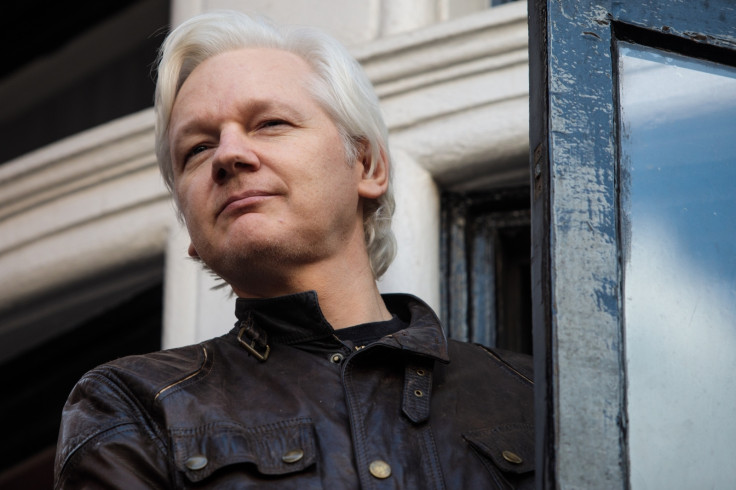Julian Assange welcomes UK ruling that WikiLeaks is a media organisation
WikiLeaks founder welcomes ruling by UK tribunal.
WikiLeaks has been recognised as a "media organisation" by a UK tribunal in a ruling that flies in the face of claims by US officials who have branded it a "hostile intelligence agency".
The anti-secrecy website – helmed by Julian Assange – has faced the ire of CIA director Mike Pompeo, who has compared its work to Hezbollah, Isis and al-Qaeda. Over the years, WikiLeaks has disclosed countless documents pilfered from the US government.
The assertion of the first-tier tribunal (information rights) in London was made in a legal filing published on Thursday (14 December) by Italian journalist Stefania Maurizi.
It followed an appeal seeking documents linked to Assange's long-running case between UK prosecutors and their Swedish counterparts.
"WikiLeaks is a media organisation which publishes and comments upon censored or restricted official materials involving war, surveillance or corruption, which are leaked to it in a variety of different circumstances," the tribunal said .
Swedish sex assault allegations against Assange, who remains in London's Ecuadorian embassy, were recently dropped – but he still fears US authorities want his extradition.
The tribunal, in a section detailing the public interest for disclosing any withheld information, described Assange as "the only media publisher and free speech advocate in the Western world who is in a situation that a UN body has characterised as arbitrary detention".
It added: "The circumstances of his case arguably raise issues about human rights and press freedom, which are the subject of legitimate public debate."
As the tribunal ruling came to light, Assange tweeted:
WikiLeaks just recognised as a 'media organisation' by UK tribunal making it harder to extradite me to the US https://t.co/cRdzPZZVIh
— Julian Assange 🔹 (@JulianAssange) December 14, 2017
Ultimately, Maurizi's request for documents was dismissed by the tribunal, which ruled that all correspondence referencing Assange and any potential extradition – sent between various prosecuting officials in the UK, US and Sweden – should remain confidential.
In November, just prior to the tribunal, Maurizi revealed that emails sent by a Crown Prosecution Service lawyer linked to the Assange case had gone missing. UK officials brushed off any suggestion of wrongdoing, saying that they were deleted after the lawyer retired.
The judge ruled: "The deletion was made before Ms Maurizi's information request was received. We conclude that there was nothing untoward in the deletion of the email account."
Estelle Dehon, one of Maurizi's legal representatives during the tribunal, told the Guardian: "Progress has been made because the tribunal accepted that the circumstances of the case raise issues of human rights and press freedom."
Since leaking tens of thousands of emails stolen from Democratic Party figures during the 2016 presidential election, the WikiLeaks founder has been dogged by accusations of close Kremlin ties, which he denies. Trump administration officials, meanwhile, want his arrest.
On 20 April, US attorney general Jeff Sessions said Assange's arrest had become a priority. He noted: "We are going to step up our effort. We will seek to put some people in jail."





















